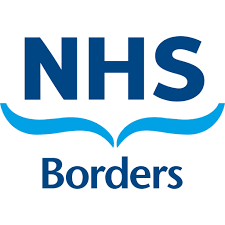

Depression as diagnosed by ICD-11 criteria can present as mild, moderate and severe. There are different treatment options (medication and non-medication) appropriate for the different levels of severity.
The Scottish Borders Mental Health Services Integrated Care Pathway (available at mentalhealthpathway_doc_19-2-.pdf (scot.nhs.uk)) describes the different levels of mental health support available in NHS Borders. These range from self help websites, primary care to secondary care support and, where clinically appropriate, admission to the psychiatry unit.
The pathway and algorithm detail non-medication and medication options that should be optimised in the treatment of moderate depression before referral to secondary care.
NHS24 funds the choice and medication website on behalf of NHS Scotland. This website contains helpful drug and disease specific information for mental health conditions, as well as patient information leaflets on each medication listed: https://www.choiceandmedication.org/nhs24
Additional information from the above site is also available, with examples below:

SPRING Social Prescribing available at: Health in Mind | Social Prescribing in the Scottish Borders (health-in-mind.org.uk)
NHS Borders Wellbeing Hub available at: nhsborders.scot.nhs.uk/patients-and-visitors/our-services/children-young-peoples-services-directory/health-improvement-team/mental-health-and-wellbeing/
RENEW Psychology Primary Care Services available via GP referral through SCI Gateway for moderate depression and anxiety.

| Alternative Antidepressant | Helpful in patient group | Caution in patient group |
| Sertraline | Recent cardiovascular events/ acts on serotonin only | Risk of hyponatraemia in elderly |
| Citalopram | Helpful if fluoxetine has been ineffective and only moderate depression / Acts on serotonin only | Risk of Qtc prolongation: avoid if other risk factors for QTc prolongation (cardiovascular disease, other QTc prolonging medications)/ risk of hyponatraemia in elderly |
| Mirtazapine | Patients with problems sleeping, underweight, lacking appetite, elderly patients / dual action on noradrenalin and serotonin | Obesity/concerned with weight gain, patients who need to be up early |
| Venlafaxine | Patients who lack motivation and struggle to get up in the mornings/more severe depressive symptoms/ dual action on serotonin and noradrenalin | Hypertension, cardiovascular disease, some elderly patients, significant overdose risk |
Once indication to prescribe has been established, unless other considerations (such as prior response to an alternative SSRI), sertraline is a suitable first line treatment.
Information on antidepressants in pregnancy should be provided to the patient: